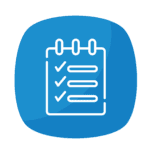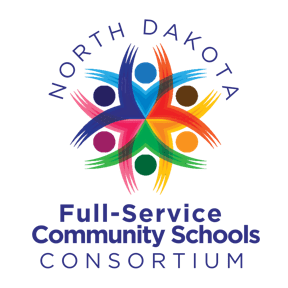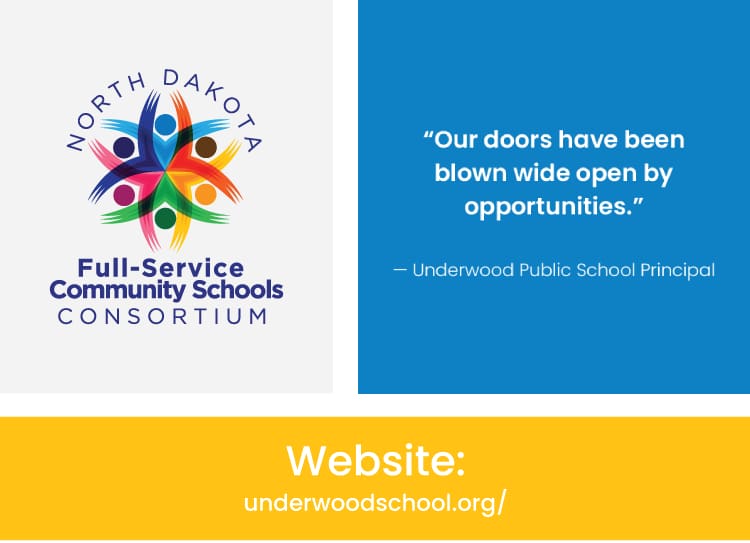IMPLEMENTATION JOURNEY
Every teacher wants the best for their students. However, most teachers are also faced with limited hours in a day, thinly stretched budgets, and a lack of access to existing resources. Even schools struggle to meet their students’ most basic educational needs—let alone the needs that live outside of the academic sphere, like hunger and lack of safety
At Underwood Public School, the Elementary School Principal could see what it would take for students to succeed academically. They recognized that their basic needs had to be met for them to be able to learn.
“Students need to know that their learning environment is designed to meet their needs. So whether they need remedial support, or enrichment and more challenging tasks within our curriculum, they need to know that it’s designed for them,” the Principal said.
As a school, creating an environment that grows successful and well-rounded students goes beyond caring for the students themselves—staff members, students’ families, and members of the community all must be served for students to have the best chance at success. Just as a hungry student struggles to learn, a hungry teacher struggles to teach.
The Principal wanted to help, but they could see that the traditional model of school wasn’t enough. Then, they heard about the North Dakota Full-Service Community Schools Consortium (NDFSCS). They had overheard a few Central Regional Education Association (CREA) staff members speaking about their work with the NDFSCS Consortium. After doing some research, they saw that member schools could fill the gaps that traditional schools had to leave open. Even more, Full-Service Community Schools serve the whole community, keeping students cared for holistically, placing them in the best headspace for learning.
Underwood Public School joined the NDFSCS Consortium in 2022. They immediately saw the benefits of being a member.
Resolving to become an active member of the community is not enough—there must be action. However, the same lack of time and resources that blocked the school before can prevent them from reaching their goal of community involvement. That’s where the Consortium comes in.
“There’s a lot of information that the Consortium is able to share with us,” the Principal explained. “They helped us look for resources and things that we could do without having that Site Coordinator.”
In their first year as a member school, Underwood Public School operated without a dedicated Site Coordinator. It takes time to find the right individual for each school. Site Coordinators need to know the ins-and-outs of, not just their specific school, but also the community.
In 2023, Underwood Public School hired a dedicated Site Coordinator, someone with experience teaching in a nearby community, giving them a deep understanding of rural schools and their students’ needs.
Since the Site Coordinator was hired, the Principal has seen a large difference in how Underwood Public School functions and meets its students’ needs.
“Our doors have been blown wide open by opportunities for additional grants and funding and training,” the Principal said.
The Principal continued, sharing how the Site Coordinator identifies the needs of the school and the community by asking the right questions: “How do we look at data differently? How do we use that data to meet the needs of our students? Where do we have instructional or curricular gaps?”
And from those identified gaps, the Site Coordinator can act. From maintaining established programs like the Comet Closet (a food-pantry-like resource for students and staff who are struggling with food insecurity and basic needs going unmet) to bringing in the 31:8 Project to help students of all ages understand the confluence of social media and human trafficking (in a developmentally appropriate way), the Site Coordinator has even worked to bring in the Artist in Residency Program and minicareer exploration programs for older students.
The Site Coordinator cites the NDFSCS Consortium as a part of Underwood Public School’s success.
“The support, collaboration, brainstorming, and forwardthinking of the Consortium has helped me navigate this new role with success,” the Site Coordinator said. “I never realized the door of opportunities the Consortium opens up to multiple partners in the community and statewide.”
The impact is already being felt. For example, thanks to bringing in the 31:8 Project, students gained skills to help them understand and identify risky situations involving social media and human trafficking. Those students have already spoken up and spoken out to help their peers (or themselves).
“Students or peers stepped up and said they needed help. Because of the 31:8 Project speaker coming in, I have worked with four different families to mitigate some really scary situations,” the Principal said. “It just gives me goosebumps to know that this happened. We were able to make a difference for these kids.”
And that’s exactly how schools can make a bigger impact in the lives of their students. When schools become FullService Community Schools, teachers and staff can focus on their own part of teaching children while knowing that everyone’s needs are being met holistically. For educators in the NDFSCS Consortium schools, like the Principal, only one question remains:
“Why wouldn’t you become a full-service community school? Our job as educators isn’t just to teach reading and math; it’s to teach kids. By teaching kids, we need to support their families, connect with our communities, and support our staff. So, to me, it’s a no-brainer. It’s a ‘Why wouldn’t you?’”

WHO WE ARE
We are an organization of educators, health professionals, and parents. Above all, we are a group of people passionate about helping students and schools succeed.

WHAT WE DO
We partner with local leaders to coordinate comprehensive supports in areas such as wellness, workforce readiness, and academic enrichment to help students and families thrive.



